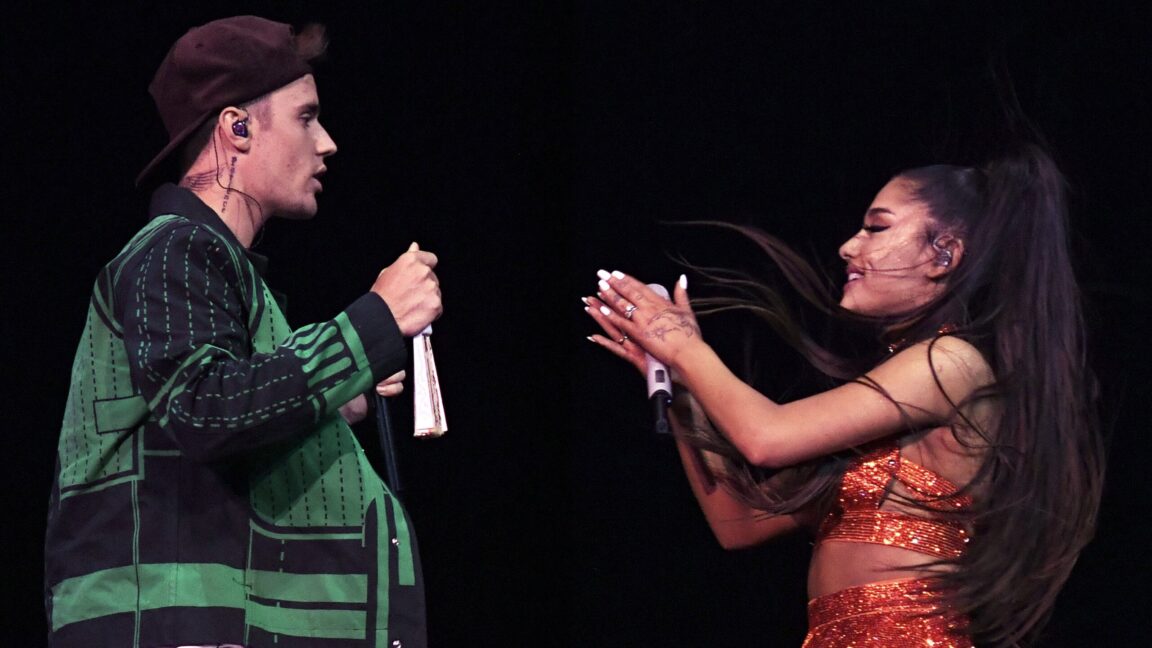Universal Music Group yesterday sued a music firm that allegedly distributes pirated songs on popular streaming services under misspelled versions of popular artists' names—such as "Kendrik Laamar," "Arriana Gramde," "Jutin Biber," and "Llady Gaga." The UMG Recordings lawsuit against the French company Believe and its US-based subsidiary, TuneCore, alleges that "Believe is fully aware that its business model is fueled by rampant piracy" and "turned a blind eye to the fact that its music catalog was rife with copyright infringing sound recordings."
Believe is a publicly traded company with about 2,020 employees in over 50 countries and reported $518 million (474.1 million euros) in revenue in the first half of 2024. Believe says its "mission is to develop independent artists and labels in the digital world."
UMG alleges that Believe achieved "dramatic growth and profitability in recent years by operating as a hub for the distribution of infringing copies of the world's most popular copyrighted recordings." Believe has licensing deals with online platforms "including TikTok, YouTube, Spotify, Apple Music, Instagram and hundreds of others," the lawsuit said.
UMG alleged that Believe distributes songs on these services "with full knowledge that many of the clients of its distribution services are fraudsters regularly providing infringing copies of copyrighted recordings." Believe enters into "distribution contracts with anyone willing to sign one of its basic form agreements," and its "client list is overrun with fraudulent 'artists' and pirate record labels who rely on Believe and its distribution network to seed infringing copies of popular sound recordings throughout the digital music ecosystem," the lawsuit said, continuing:
Believe makes little effort to hide its illegal actions. Indeed, the names of its "artists" and recordings are often minor variants on the names of Plaintiffs' famous recording artists and the titles of their most successful works. For example, Believe has distributed infringing tracks from infringers who call themselves "Kendrik Laamar" (a reference to Kendrick Lamar); "Arriana Gramde" (a reference to Ariana Grande); "Jutin Biber" (a reference to Justin Bieber); and "Llady Gaga" (a reference to Lady Gaga). Often, Believe distributes overtly infringing versions of original tracks by famous artists with notations that they are "sped up" or "remixed."The Rihanna song "S&M" was distributed as a remix by Believe under the name "Rihamna," the lawsuit said. In other cases, names associated with allegedly infringing tracks were very different from the real artists' names. The lawsuit said Lady Gaga's "Bad Romance" and Billie Eilish's "TV" were both distributed in sped-up form under the name "INDRAGERSN."
Believe cites “Tier 1 status” in music stores
UMG sued Believe in US District Court for the Southern District of New York. UMG is seeking injunctions and the maximum statutory damages of $150,000 for each infringed work, or alternatively "actual damages and Believe's profits from infringement, in amounts to be proven at trial." UMG submitted two exhibits listing 1,380 allegedly infringed works and said it expects "that discovery in this matter will reveal far more infringements." When contacted by Ars today, Believe did not provide a specific response to the lawsuit but said it will fight the claims. "As companies that work with artists and labels around the world, [Believe and Tunecore] take the respect of copyright very seriously," the statement said. "We strongly refute these claims, and the statements made by Universal Music Group and will fight them. We have developed robust tools and processes to tackle this industrywide challenge, working collaboratively with partners and peers and will continue to do so." Believe's statement to Ars cited its deals with online platforms as evidence of its strong reputation. "We have been at the forefront of the digital music ecosystem for nearly 20 years, supporting the development of independent artists and labels, and have been awarded Tier 1 status and included in the Preferred Partner Program across all music stores," Believe said. UMG's lawsuit said Believe has "distributed millions of sound recordings to digital service providers," which is "more than the number of legitimate recordings distributed by Plaintiffs and other major labels and reputable independent labels combined." UMG alleged that Believe has also found ways to collect royalties that should go to UMG and other rightful copyright owners:As just one example, Believe has taken advantage of the content management claiming system on the well-known YouTube platform to assert copyright ownership in numerous of Plaintiffs' recordings, thereby diverting or delaying payment of royalties properly payable to Plaintiffs for use of their owned and distributed recordings. Tellingly, even after conflicts on YouTube involving obviously infringing recordings have been resolved in favor of Plaintiffs—meaning that Believe acknowledged that it had no rights in a particular recording—Believe continued to distribute the exact same track to other digital music service providers and to seek royalties for use of that track from those providers.


